
The politics of Bulgaria take place in a framework of a parliamentary representative democratic republic, whereby the prime minister is the head of government, and of a multi-party system. Executive power is exercised by the government. Legislative power is vested in both the government and the National Assembly. The Judiciary is independent of the executive and the legislature.

The politics of Finland take place within the framework of a parliamentary representative democracy. Finland is a republic whose head of state is President Alexander Stubb, who leads the nation's foreign policy and is the supreme commander of the Finnish Defence Forces. Finland's head of government is Prime Minister Petteri Orpo, who leads the nation's executive branch, called the Finnish Government. Legislative power is vested in the Parliament of Finland, and the Government has limited rights to amend or extend legislation. The Constitution of Finland vests power to both the President and Government: the President has veto power over parliamentary decisions, although this power can be overruled by a majority vote in the Parliament.
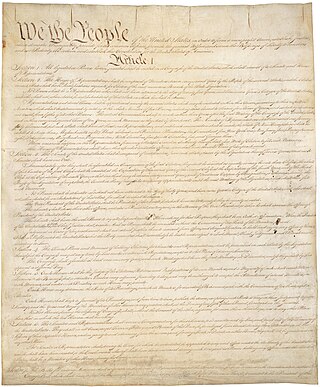
The Constitution of the United States is the supreme law of the United States. It superseded the Articles of Confederation, the nation's first constitution, on March 4, 1789. Originally including seven articles, the Constitution delineates the frame of the federal government. The Constitution's first three articles embody the doctrine of the separation of powers, in which the federal government is divided into three branches: the legislative, consisting of the bicameral Congress ; the executive, consisting of the president and subordinate officers ; and the judicial, consisting of the Supreme Court and other federal courts. Article IV, Article V, and Article VI embody concepts of federalism, describing the rights and responsibilities of state governments, the states in relationship to the federal government, and the shared process of constitutional amendment. Article VII establishes the procedure subsequently used by the 13 states to ratify it. The Constitution of the United States is the oldest and longest-standing written and codified national constitution in force in the world.

The government of Italy is that of a democratic republic, established by the Italian constitution in 1948. It consists of legislative, executive, and judicial subdivisions, as well as of a head of state, known as the president.

The European Court of Justice (ECJ), formally just the Court of Justice, is the supreme court of the European Union in matters of European Union law. As a part of the Court of Justice of the European Union, it is tasked with interpreting EU law and ensuring its uniform application across all EU member states under Article 263 of the Treaty of the Functioning of the European Union (TFEU).

The president of the Republic of Bulgaria is the head of state of Bulgaria and the commander-in-chief of the Bulgarian Army. The official residence of the president is at Boyana Residence, Sofia. After the completion of the second round of voting, candidate Rumen Radev was elected President of Bulgaria on 13 November 2016.
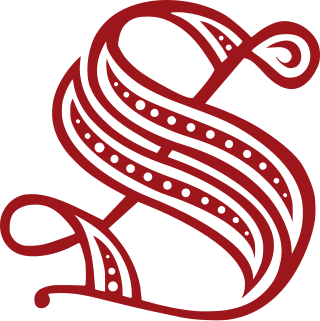
The Italian Parliament is the national parliament of the Italian Republic. It is the representative body of Italian citizens and is the successor to the Parliament of the Kingdom of Sardinia (1848–1861), the Parliament of the Kingdom of Italy (1861–1943), the transitional National Council (1945–1946) and the Constituent Assembly (1946–1948). It is a bicameral legislature with 600 elected members and a small number of unelected members. The Italian Parliament is composed of the Chamber of Deputies, as well as the Senate of the Republic.

The Constitutional Court of the Italian Republic is the highest court of Italy in matters of constitutional law. Sometimes, the name Consulta is used as a metonym for it, because its sessions are held in Palazzo della Consulta in Rome.
The Constitution of the Republic of Singapore is the supreme law of Singapore. A written constitution, the text which took effect on 9 August 1965 is derived from the Constitution of the State of Singapore 1963, provisions of the Federal Constitution of Malaysia made applicable to Singapore by the Republic of Singapore Independence Act 1965, and the Republic of Singapore Independence Act itself. The text of the Constitution is one of the legally binding sources of constitutional law in Singapore, the others being judicial interpretations of the Constitution, and certain other statutes. Non-binding sources are influences on constitutional law such as soft law, constitutional conventions, and public international law.
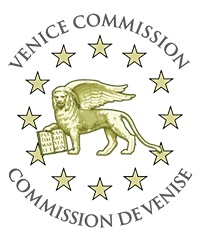
The Venice Commission, officially European Commission for Democracy through Law, is an advisory body of the Council of Europe, composed of independent experts in the field of constitutional law. It was created in 1990 after the fall of the Berlin Wall, at a time of urgent need for constitutional assistance in Central and Eastern Europe.

The Prime Minister of Kenya was a post in the Kenyan government. The first Prime Minister of Kenya was H.E. Jomo Kenyatta, who became Prime Minister in 1963. In 1964, when Kenya became a republic, the post of Prime Minister was abolished and Jomo Kenyatta became president. Following a power-sharing agreement in February 2008, the role was recreated in April 2008 and held by H.E. Rt. Hon. Raila Odinga E.G.H. The position was again abolished by the 2010 Constitution after the 2013 elections.

Bulgaria joined the Council of Europe and ratified the European Convention on Human Rights in 1992 and joined the European Union in 2007. Despite this, Bulgarian compliance with human rights norms falls below the standard expected of an ECHR signatory. The European Court of Human Rights noted that of 596 applications dealt with by the Court in 2022, 25 resulted in a judgement finding at least one human rights violation.

The Supreme Court of Cassation is the final court of appeal in the Republic of Bulgaria. Its work is governed by the Constitution of 1991. According to Article 124, it exercises supreme judicial power over the application of the law in all courts. The Supreme Court of Cassation may even overturn a final decision by a lower court. It also takes part in the appointment of judges for the Constitutional Court. The Supreme Court of Cassation, however, does have to hand cases over to the Constitutional Court when it finds a contradiction between the laws and the Constitution of the Republic. If a question of constitutionality arises, the court may refer it to the Constitutional Court.

Saeed Uz Zaman Siddiqui was a Pakistani jurist and legislator of great prominence who formerly served as the 15th Chief Justice of Pakistan and, prior to that, the 7th Chief Justice of the Sindh High Court. At the time of his death, he was serving as the 31st Governor of Sindh.

The constitution of the United Kingdom comprises the written and unwritten arrangements that establish the United Kingdom of Great Britain and Northern Ireland as a political body. Unlike in most countries, no official attempt has been made to codify such arrangements into a single document, thus it is known as an uncodified constitution. This enables the constitution to be easily changed as no provisions are formally entrenched.
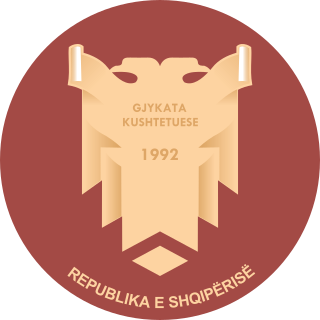
The Constitutional Court of the Republic of Albania is the highest authority in Albania's legal system that defends and assures the respect of the Constitution of Albania.

The Federal Constitutional Court is the supreme constitutional court for the Federal Republic of Germany, established by the constitution or Basic Law of Germany. Since its inception with the beginning of the post-World War II republic, the court has been located in the city of Karlsruhe, which is also the seat of the Federal Court of Justice.
Stoyan Ganev was a UN official, Bulgarian diplomat, politician and jurist.

The Plurinational Constitutional Tribunal is a national court in Bolivia charged with adjudicating the constitutionality of laws, government power, and treaties in accordance with the country's 2009 Constitution, which created it. The tribunal is headquartered in Sucre and consists of seven members. It was first seated on 2 January 2012. Its powers are set out in Articles 196–204 of the 2009 Constitution, the Law of the Judicial Organ, and Law of the Plurinational Constitutional Tribunal . The Plurinational Constitutional Tribunal replaces the Constitutional Court of Bolivia, which operated from 1999 to 2011.
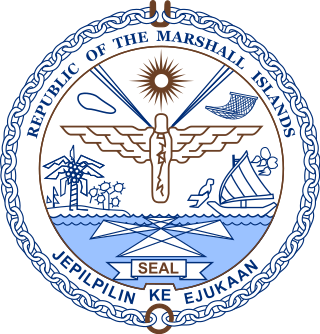
The Constitution of the Marshall Islands is the supreme law of the Republic of the Marshall Islands, in force from 1 May 1979.















